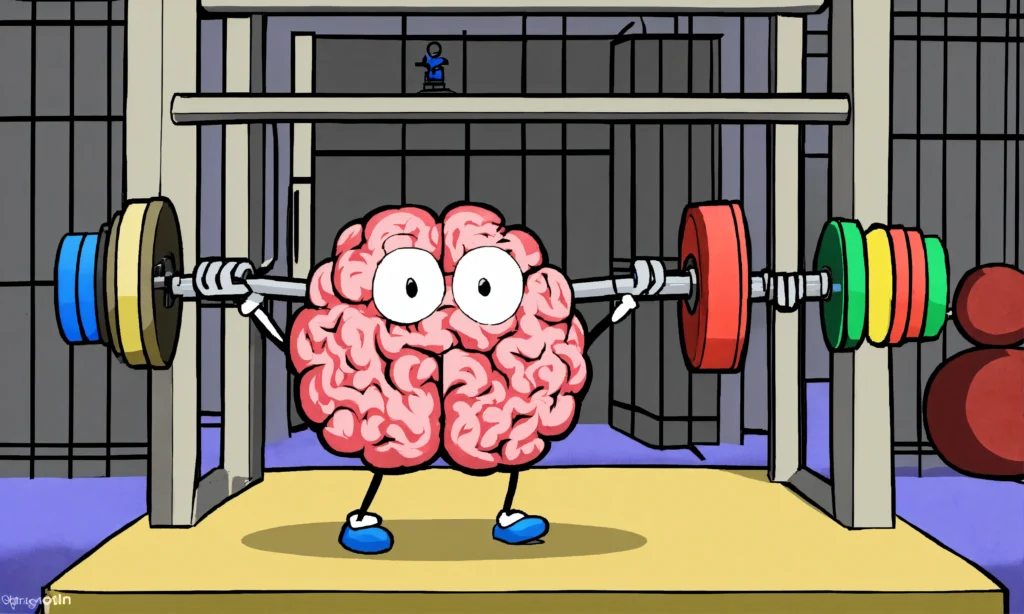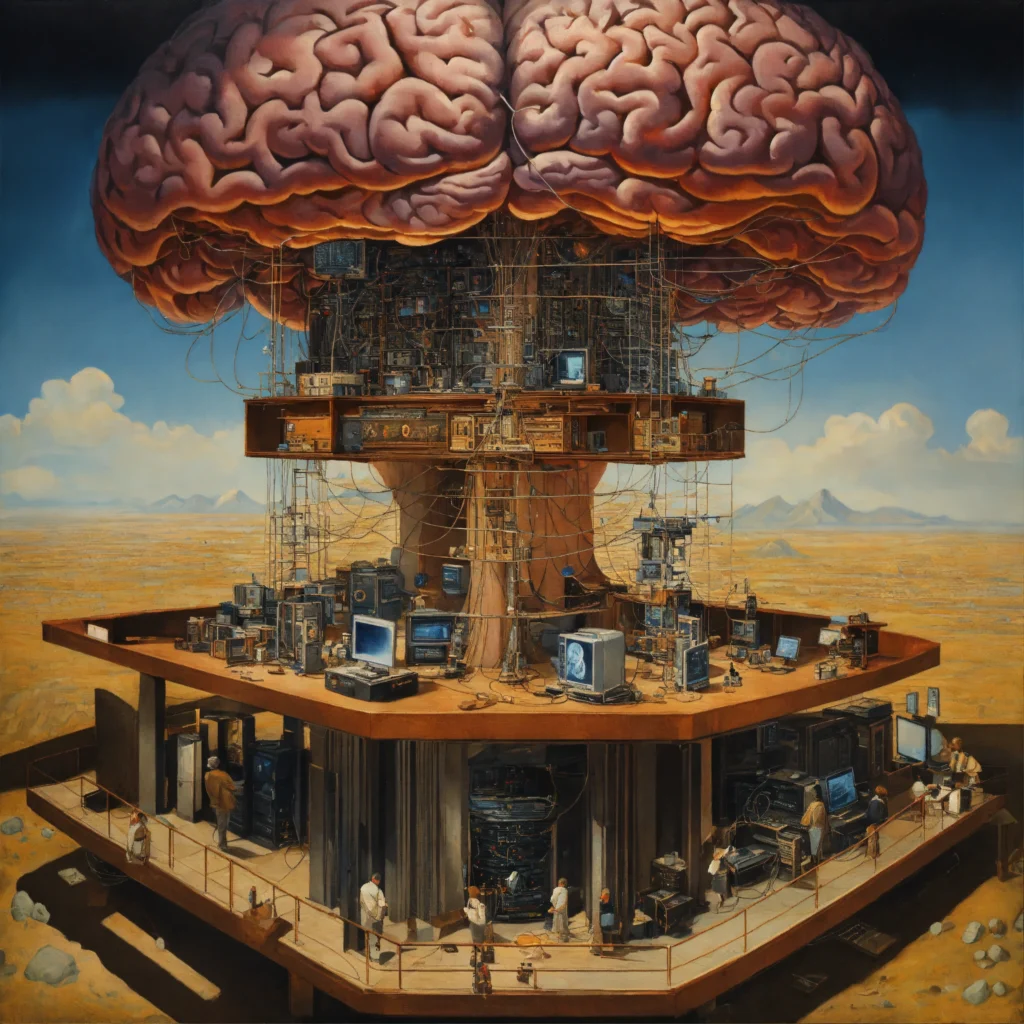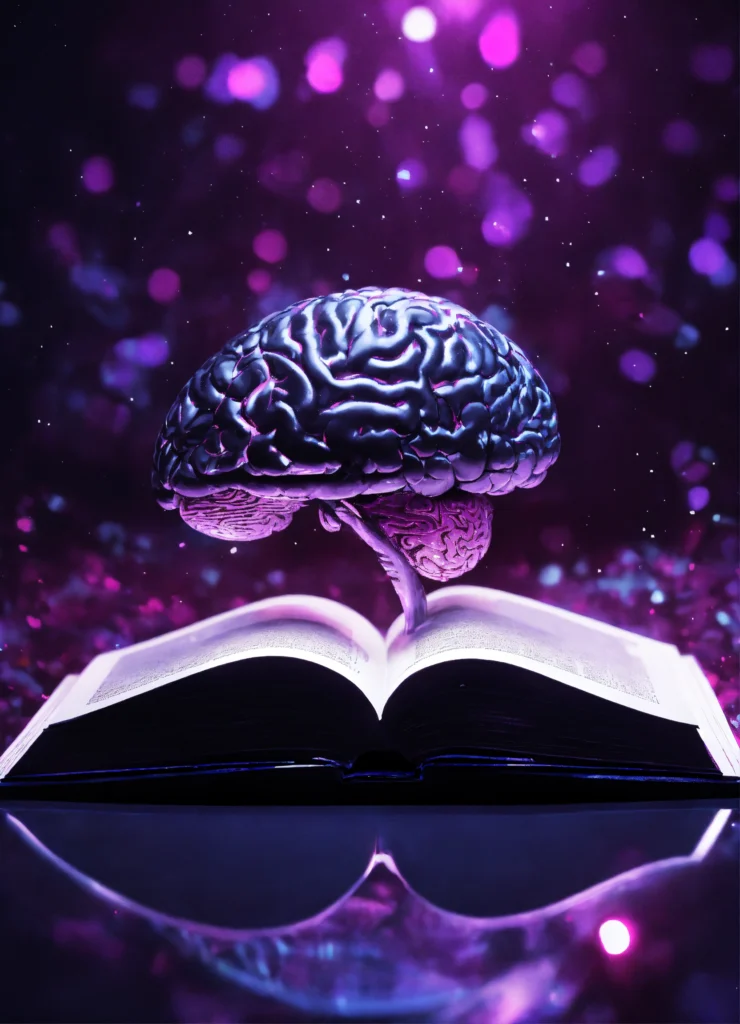How to Boost Brain Health
Introduction.
It is more important than ever to maintain brain health in the fast-paced world of today. In addition to being in charge of cognitive processes like remembering and problem-solving, our brains are also essential for controlling emotions and stress. As time goes on, research connecting brain health to lifespan and general well-being makes the value of taking care of our brains even more clear.
Fortunately, there are a lot of doable actions we can do to improve brain function. Simple dietary modifications can result in notable gains in emotional stability and cognitive function. Knowing how to take care of your brain is crucial, whether your goal is to improve memory, focus, or just feel more energised.
This blog article will examine a number of methods for enhancing brain health, such as stress reduction, physical exercise, mental stimulation, and diet. You may improve the quality of your life and develop a healthier mind by implementing these suggestions into your everyday practice. Now let’s explore the doable actions you may take to help your brain and realise its full potential.

Brain Health.
Comprehending the state of the brain is crucial for general health and life satisfaction. Fundamentally, brain health is the state in which the brain functions at its best, including cognitive functions like memory, attention, problem-solving, and emotional control. Not only is a healthy brain essential for daily duties, but it also affects our relationships, judgement, and capacity for stress management.
Keeping brain connections strong and allowing the brain to adjust and change based on new experiences are key parts of maintaining a healthy brain. Age, heredity, lifestyle decisions, and environmental factors are all important for maintaining brain health. For example, maintaining social relationships, eating a well-balanced, nutrient-rich diet, and exercising frequently can all greatly improve mental and emotional health.
Moreover, there is an inherent connection between brain and mental health. Anxiety and depression, for example, can have a detrimental effect on cognitive function, starting a vicious cycle that further impairs brain function overall. Prioritising mental health helps us live more emotionally and cognitively resilient lives, which in turn leads to richer and more satisfying lives. Knowing these components gives us the ability to actively nurture our brains for a healthy future.
Nutrition for Brain Health
Nutrient intake has a major impact on maintaining and enhancing brain health. Emotional stability, memory, and cognitive function are all significantly impacted by eating a balanced diet. To operate at peak efficiency, the brain requires a wide range of nutrients.
Omega-3 fatty acids, which are present in walnuts and fatty seafood like salmon, are essential nutrients for brain function. These good fats are essential for the synthesis of cell membranes and for stimulating the development of new neurones, or neurogenesis. Antioxidants help shield brain cells from oxidative stress, which can cause cognitive loss. They are found in colourful fruits and vegetables including kale, spinach, and berries.The main source of energy for the brain, glucose, is consistently supplied by whole grains, which are high in complex carbs. Foods abundant in vitamins and minerals, such as leafy greens, nuts, and seeds, can aid to brain function by supporting overall metabolic processes.Another essential component of brain nutrition is hydration. It’s critical to drink enough water throughout the day because dehydration can impair memory and focus.Including these nutrient-dense foods in your diet will help you feel more emotionally stable and perform better cognitively. We may cultivate a healthier brain and improve our general quality of life by choosing our food wisely.
Hydration
Sustaining good cognitive health and performance necessitates sufficient hydration. Since the brain is roughly 75% water, even a small amount of dehydration can have an impact on mental processes including mood, concentration, and memory. Maintaining hydration facilitates blood flow and the delivery of vital nutrients to brain tissue. Make an effort to stay well-hydrated by eating meals like fruits and vegetables that are high in water content and drinking water throughout the day. Developing hydration habits, like carrying a water bottle with you, and being aware of your body’s thirst signals can significantly improve your general well-being and cognitive performance. Prioritising water is a simple yet effective way to support brain health.
Physical Activity and Brain Health
A healthy brain is mostly maintained and improved by physical activity. Frequent exercise promotes blood flow to the brain, which is key for supplying oxygen and nutrients that are necessary for preserving cognitive function and general brain health. Through a process known as neurogenesis, physical activity encourages the formation of new neurones, especially in the hippocampus, the area of the brain linked to memory and learning.
Exercise has also been demonstrated to lower the risk of neurological disorders including Parkinson’s and Alzheimer’s as well as cognitive loss. Frequent movement also helps lower anxiety and sadness, two conditions that can have a detrimental influence on brain function, by regulating stress hormones like cortisol. Furthermore, exercise improves the brain’s plasticity, which enables it to focus better, increase problem-solving abilities, and adjust to new obstacles.
In summary, maintaining and improving brain health through regular physical activity is essential for fostering greater cognitive ability and mental resilience It enhances physical health as well.

Mental Stimulation and Cognitive Engagement
Throughout life, cognitive engagement and mental stimulation are essential for preserving and improving brain health. Playing musical instruments, acquiring new skills, solving puzzles, and reading are examples of mentally engaging activities that support cognitive resilience and keep the brain busy. These activities promote neuroplasticity, the idea that new neural connections increase the brain’s capacity to process information and adapt to changing circumstances.
Regular cognitive engagement has been linked to a lower risk of cognitive decline and neurodegenerative illnesses such as dementia and Alzheimer’s. It keeps vital cognitive functions including memory, concentration, and problem-solving skills intact. Curiousity and ongoing learning also help to prevent age-related cognitive decline by providing the brain with new and different tasks throughout one’s life.
Social interaction.An additional significant source of mental stimulation is social engagement. Discussions, arguments, and group problem-solving exercises excite the brain and provide chances for sophisticated thinking and emotional intelligence.
Social interaction.
An additional significant source of mental stimulation is social engagement. Discussions, arguments, and group problem-solving exercises excite the brain and provide chances for sophisticated thinking and emotional intelligence.Especially as people age, including mental stimulation and cognitive engagement into daily life can significantly improve cognitive functioning, maintain overall wellbeing, and strengthen the health of the brain. Maintaining an engaged and demanding brain is something that may be started at any age.
Challenging the Brain
Maintaining cognitive health and enhancing brain function require mentally demanding tasks that push the brain. The brain is forced to adapt and create new neural connections by tasks like playing strategic games, solving puzzles, picking up new talents, and taking up artistic hobbies. This mental work improves cognitive skills including focus, memory, and problem-solving. Furthermore, brain stimulation promotes neuroplasticity, which keeps the brain adaptable and resistant to aging-related decline. Regularly stimulating the brain guarantees long-term cognitive health and boosts general mental well-being, whether through tough tasks or attempting something new.
Social Connections
Having social ties is essential for preserving one’s mental and emotional health. Developing deep connections with people lowers stress, elevates happiness, and enhances cognitive performance. The brain is stimulated by positive social interactions, which promote empathy, communication, and problem-solving abilities. Strong social networks have been linked to a lower risk of cognitive decline, loneliness, and depression, according to studies. Maintaining social connections—whether through family, friends, or community involvement—is crucial for mental health, emotional resilience, and general life satisfaction, all of which lead to a longer, better life.

Sleep and Brain Health
Sleep is essential for maintaining the brain’s optimal functioning. While we sleep, the brain purges impurities, organises and interprets memories, and supports cognitive functions including learning, focus, and problem-solving. More sleep is linked to better moods, more alert minds, and more sensible judgements. On the other side, persistent sleep deprivation can interfere with these functions, raising the risk of neurodegenerative diseases like Alzheimer’s and leading to memory loss and cognitive decline. Regular sleep promotes emotional regulation, rejuvenates the brain, and improves overall mental and physical well-being, all of which are critical for sustaining long-term brain health
The Role of Sleep
Sleep is essential for good health in general, and for the brain in particular. Learning is enhanced and long-term memories are formed as a result of the brain’s ability to filter and organise information. The brain detoxifies and cleanses itself during deep sleep, facilitating cognitive processes including emotional control, problem-solving, and focus. While sleep deprivation can cause memory loss, poor judgement, and elevated stress, regular, restorative sleep improves mood and mental clarity. A increased risk of neurological diseases and cognitive deterioration over time has been associated with inadequate sleep. Making sleep a priority is crucial to preserving the best possible state of mind and general wellbeing.
Recognising Sleep Disorders
It’s critical to identify sleep disturbances in order to preserve physical and emotional well-being. Common indicators include difficulties falling asleep, frequent awakening during the night, excessive daytime sleepiness, and feeling unrefreshed after a full night’s rest. Disorders such as narcolepsy, sleep apnoea, insomnia, and restless legs syndrome can have a detrimental effect on mood, cognition, and general wellbeing. Sleep disturbances raise the risk of long-term conditions like depression, diabetes, and heart disease if they are not treated. It’s crucial to get medical help if you have ongoing sleep issues in order to determine the underlying cause and enhance the quality of your sleep for improved daily functioning and overall health.

Stress Management Techniques
Effective stress management practices are vital for preserving mental, emotional, and physical well-being. A widely used method is mindfulness training, which entails being totally present and involved in the current moment. This can be achieved through yoga, deep breathing techniques, or meditation—all of which promote mental calmness and lower the production of stress chemicals like cortisol.
Engaging in physical activity is an effective means of reducing stress. Frequent exercise, such as running, strength training, or walking, promotes the release of endorphins, which are the body’s natural mood enhancers and enhance mental and emotional toughness.
Additionally, time management helps lessen stress. Keeping things in order and establishing reasonable objectives helps keep overwhelm at bay. Partitioning intricate undertakings into smaller, more feasible assignments fosters a feeling of mastery and authority.
Hobbies that assist relax the mind and provide a healthy diversion from daily stressors include painting, gardening, and reading. During trying circumstances, forming close social ties and asking friends and family for help can also provide emotional solace.
Stress reduction is further aided by using relaxation strategies such as taking breaks, spending time in nature, or listening to music. Regular application of these techniques promotes a balanced lifestyle and improves both mental and physical health
Impact of Stress on the Brain
Prolonged stress significantly alters the structure and function of the brain. Long-term stress raises cortisol levels, which can affect memory, concentration, and decision-making among other cognitive functions. Stress can cause the hippocampus, the part of the brain involved in memory and learning, to shrink over time while the amygdala, the brain region in charge of fear and anxiety, becomes more active. This imbalance can lead to heightened anxiety, despair, and difficulties controlling emotions. Chronic stress accelerates cognitive decline and raises the likelihood of mental health disorders when left unchecked, underscoring the significance of stress management techniques.
Effective Stress-Reduction Strategies
Reducing stress effectively is crucial to preserving both physical and mental health. Deep breathing exercises and mindfulness meditation are two techniques that promote relaxation by calming the body and mind. Frequent exercise, like yoga or walking, lowers cortisol levels, which are linked to stress. Task prioritisation is one time management strategy that helps save you from feeling overburdened. Emotional relief can also be obtained by fostering social relationships and asking friends, family, or experts for assistance. Including self-care practices and hobbies like writing or reading permits mental respite. Additionally, getting enough sleep is essential for lowering stress since a rested mind is better able to deal with everyday obstacles.
Protecting Your Brain from Injury
Maintaining your long-term health and wellbeing requires protecting your brain from harm. Traumatic brain injuries (TBIs) can result from high-impact incidents such as sports, falls, and auto accidents. Wearing protective headgear, such as helmets, while riding, skating, or participating in contact sports is one of the most crucial preventive strategies. Furthermore, employing seat belts and driving defensively can greatly lower the chance of injuries in auto accidents.
In order to prevent falls, it’s also critical to build safe conditions, especially at home. This involves fastening loose rugs, using non-slip mats in the bathroom, and ensuring enough illumination. In sports, the likelihood of collisions or potentially harmful impacts can be decreased by adhering to safety regulations and employing the proper skills.
By making the neck muscles stronger through exercise, one may lessen the chance of injury by stabilising the head during abrupt movements. Generally speaking, regular exercise encourages healthy blood flow to the brain, which improves cognitive function and healing.
Lastly, controlling the use of substances like alcohol and drugs can help avoid poor judgement and poor coordination, which lowers the risk of mishaps. You can preserve cognitive health and drastically reduce your risk of brain injury by implementing these preventative measures.
Cognitive Training and Brain Games
The goals of cognitive training and brain games are to enhance mental abilities like memory, focus, and problem-solving. Through mental challenges such as memory tests, logic games, and puzzles, cognitive training supports the maintenance of mental flexibility and the strengthening of neural networks in the brain. Popular brainteasers include memory-matching tasks, Sudoku, and crossword puzzles. Research indicates that consistent participation in these pursuits may postpone cognitive ageing, particularly in the elderly population. Additionally, personalised cognitive workouts are available via digital apps and platforms, which adjust difficulty levels based on user progress. Brain games encourage a more engaged and active mind throughout life, even though they might not be able to totally avoid aging-related cognitive loss.
Conclusion.
To sum up, proactive measures to safeguard your brain and improve cognitive performance are critical for maintaining long-term mental health and wellbeing. Whether it’s through physical safety precautions to prevent damage, engaging in cognitive training and brain games to keep the mind sharp, or implementing stress-reduction tactics for general balance, these practices contribute to a healthier brain. You may keep your cognitive talents as you age by keeping your environment safe, putting self-care first, and regularly testing your intellect. You may enhance your physical and mental health and foster lifetime brain health by incorporating these behaviours into your everyday routine.

FAQs
How can brain power be increased most effectively?
Exercise Regularly: Physical activity increases blood flow to the brain and promotes the growth of new brain cells.
Eat Brain-Boosting Foods: Incorporate foods rich in antioxidants, healthy fats, vitamins, and minerals, such as berries, leafy greens, fish, nuts, and whole grains
Get Enough Sleep: Aim for 7-9 hours of quality sleep to allow your brain to repair and consolidate memories.
Manage Stress: Chronic stress can damage brain cells. Meditation, yoga, and mindfulness exercises can help reduce stress levels.
Is it true that meditation can enhance brain power?
Yes, meditation can significantly boost brain function. It improves focus, memory, and emotional regulation, and it can reduce stress, which in turn improves cognitive performance
How can social interaction affect the health of the brain?
In the long run, socialising and having meaningful discussions can lower the incidence of memory while also improving mood and cognitive performance. Making connections with other people activates parts of the brain related to empathy, communication, and problem-solving.
Does staying hydrated affect cognitive function?
Indeed, dehydration can impair cognitive function, resulting in issues with focus, memory, and mental clarity. Water consumption throughout the day is essential for the best possible brain function.

